Menstrual health and mentoring in Nepal lockdown
- Published
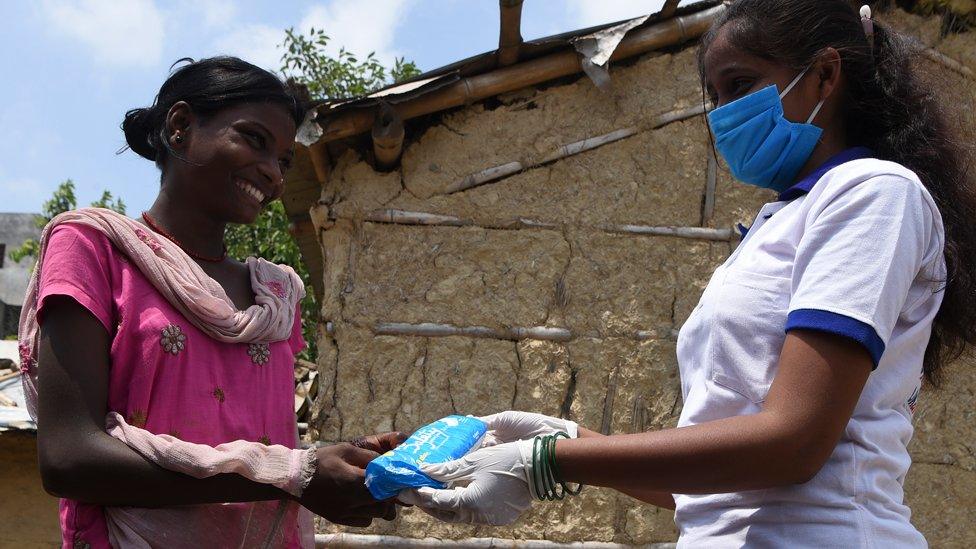
In rural areas of Nepal where menstruation is widely stigmatised, volunteers have been helping women and girls overcome the additional barriers of lockdown, so that they can maintain their period in a safe and dignified way.
Where menstrual taboo - or chhaupadi - exists, women and girls may be forbidden from touching communal household objects, and exiled to makeshift huts for the duration of their period.
Housebound under coronavirus lockdown, some girls have faced new difficulties in accessing and affording period products.
Volunteers with Voluntary Service Overseas' Sisters for Sisters' Education project have provided guidance during the pandemic, and distributed hygiene packs to nearly 3,000 girls in Surkhet, Lamjung, Dhading and Parsa districts of Nepal.
The kits include basic wash items such as soap, a towel, toothbrush, reusable sanitary pad, underwear, nail cutters and liquid chlorine.
One of the project mentees - a 'little sister' - shared some of her experiences of maintaining menstrual health during lockdown, alongside her 'big sister' mentor.

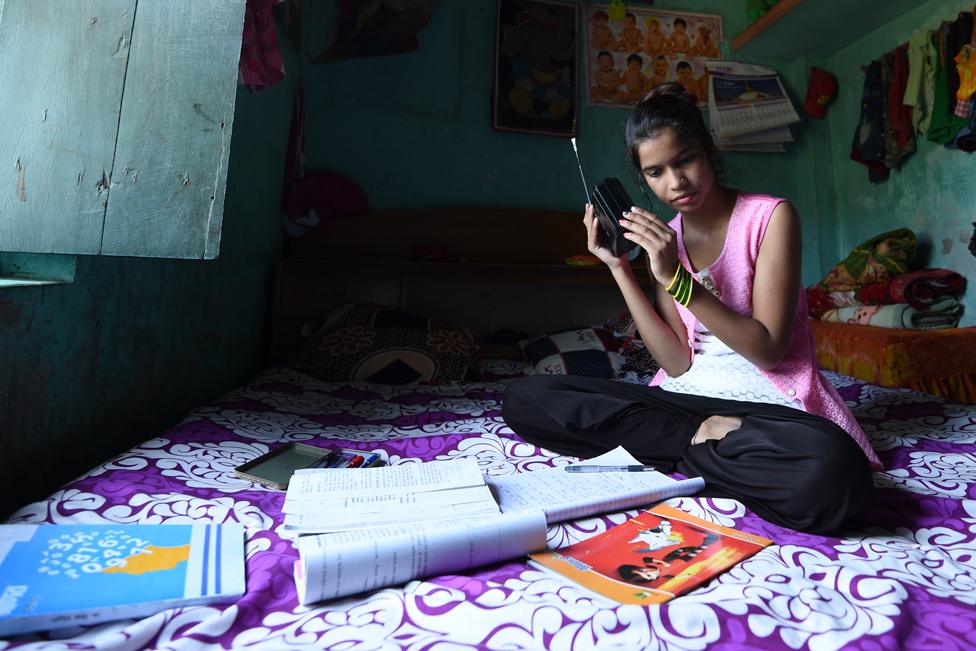
Anjali Patel, 'Little Sister'
Anjali, 15, was in grade four when a volunteer started providing mentoring support for her.
"When I was 10 years old, I would rarely go to school as I was occupied with house chores," said Anjali.
"My parents also didn't find it important for me as a daughter going to school.
"It was big sister Muni who came and talked with my parents about how important it is for me to access education.
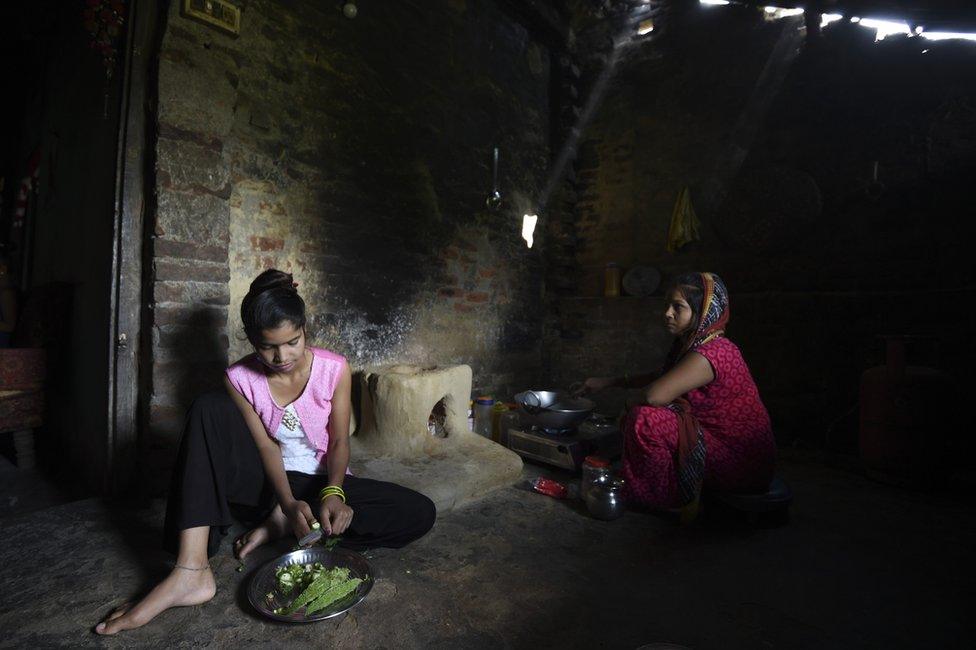
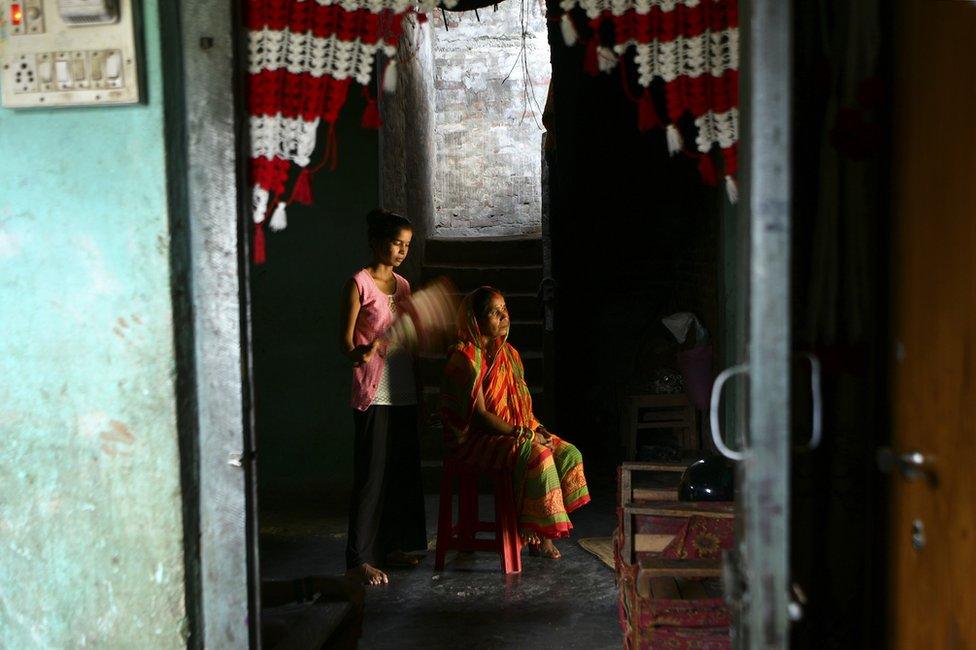
"The impact of coronavirus started to affect my education following the nationwide lockdown and it has hugely changed our lives," continued Anjali.
"We were told to live inside our homes and not to have face-face contact with my friends and big sisters.
"Through mobile mentoring, Muni informed us that if we take the proper precaution of washing hands and not going out from home without any urgency, we will stay protected from coronavirus.
"Over the phone she helped us to better manage our menstrual hygiene.
"During the lockdown, I was unable to buy sanitary pads. When we were in school we would get it there, but during the lockdown we were unable to go to school.
"The pharmacy also went out of stock.
"Thankfully, Muni came to my home - as she lives in my neighbourhood - and taught me to make home-made sanitary pad.
"This helped me and my mother to access pads during the height of lockdown."

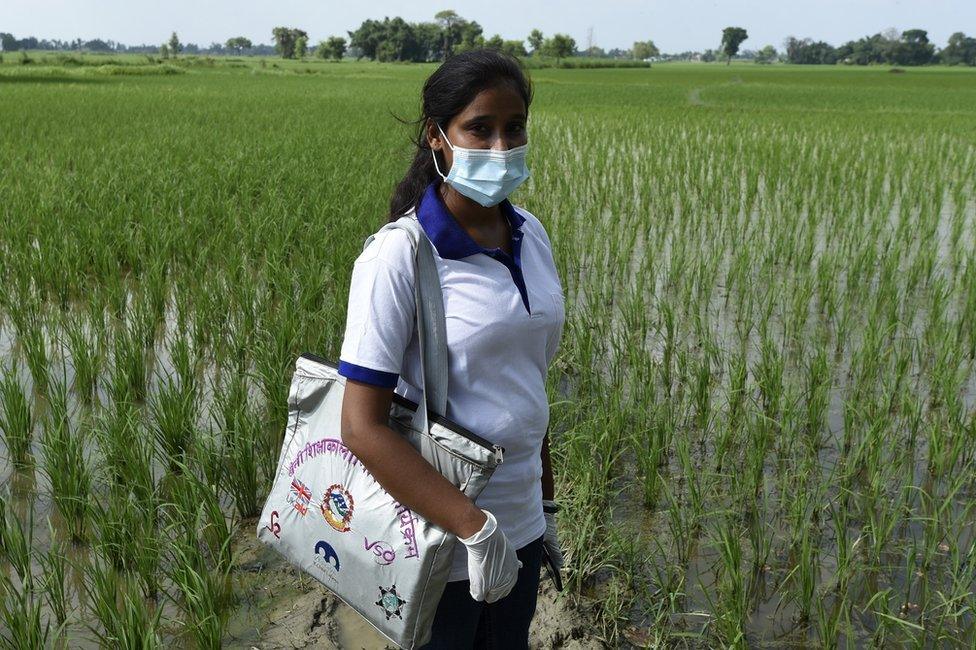
Muni Gupta, 'Big Sister'
A volunteer and mentor of 11 girls in her community, Muni helps to spread awareness about the coronavirus, and how young girls can maintain menstrual hygiene under lockdown.
"During this lockdown, I am regularly in contact with all of my little sisters through mobile phone," explained Muni.
"Ever since Covid-19 positive cases have been found in my community, the fear has increased in people.
"I was allowed to visit a few families near my home so that I could orient them on washing hands and using masks properly.
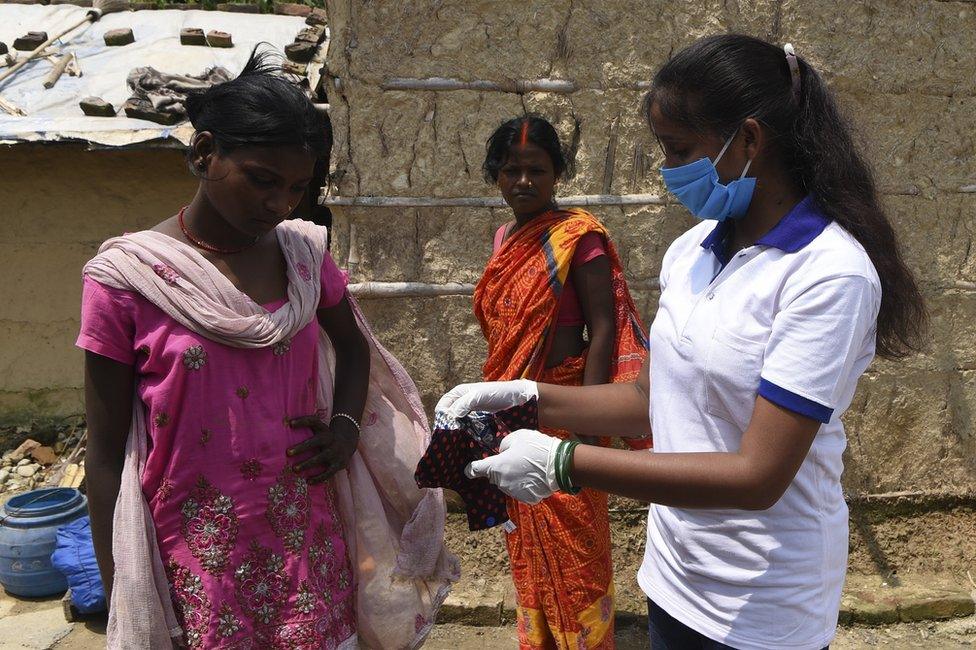
"Through [Sisters for Sisters' Education project] we had received training in making reusable sanitary pads at home, which I was able to then teach to my family members and women and girls in the community," continued Muni.
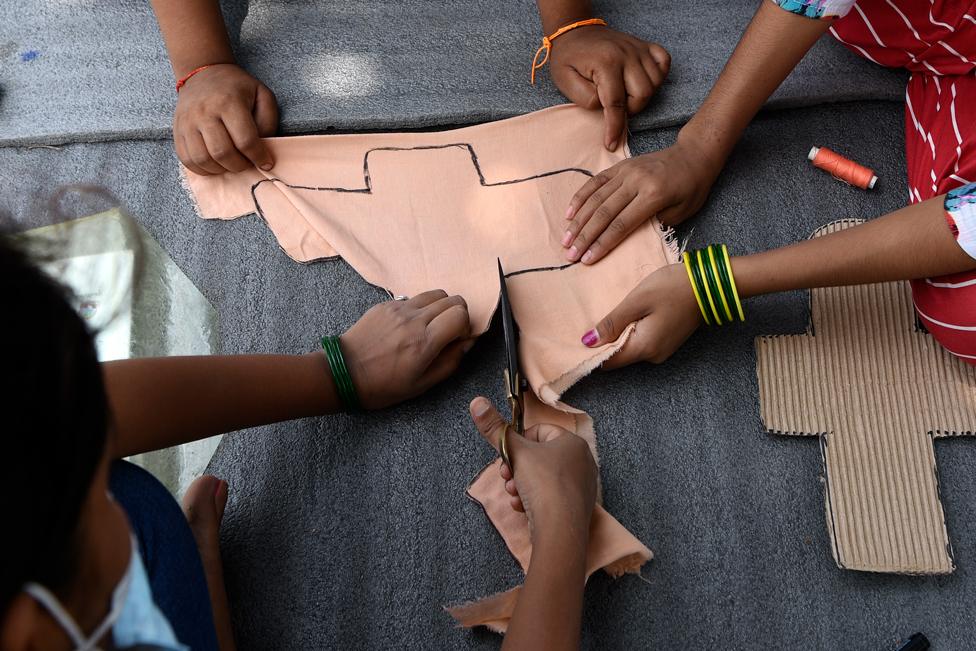
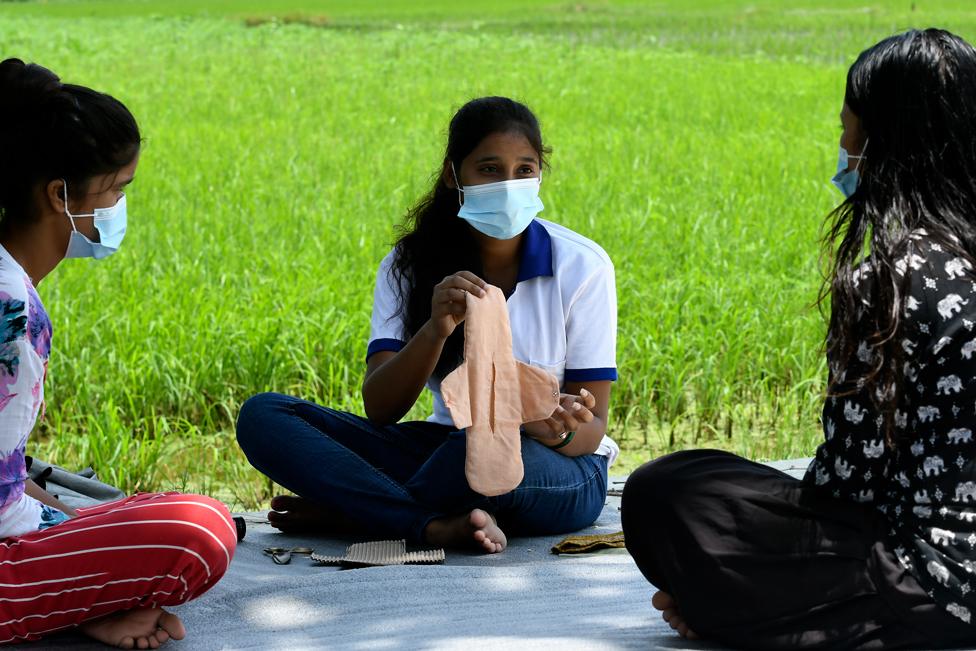
"I felt proud that my community appreciated and supported me in my work."

All photographs subject to copyright.